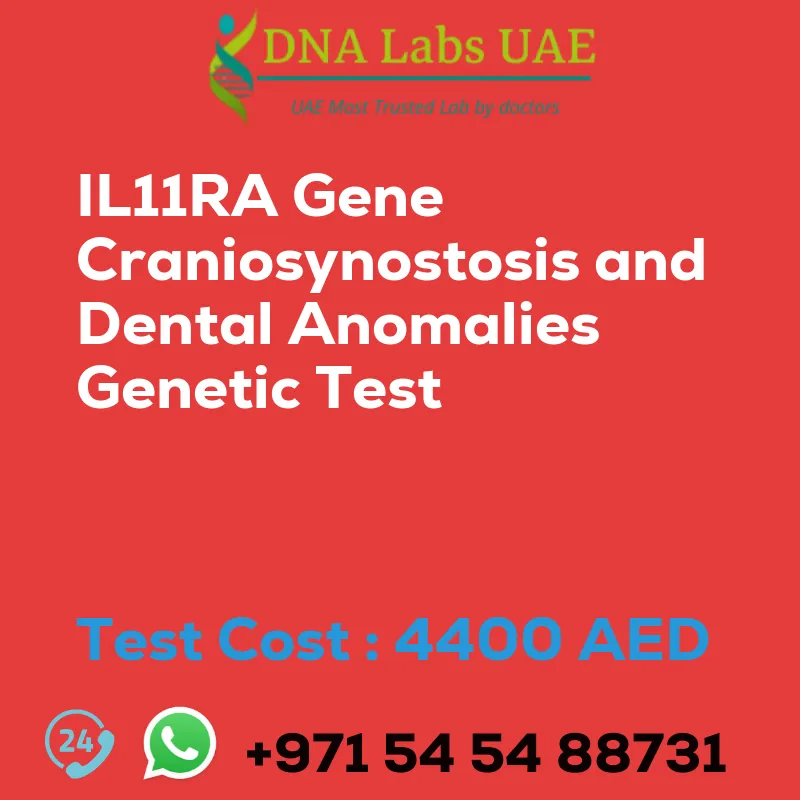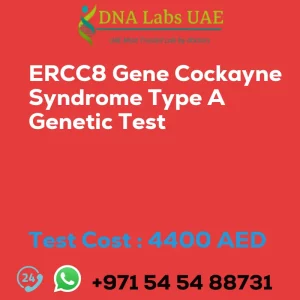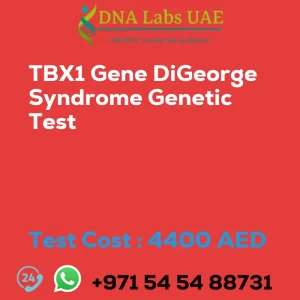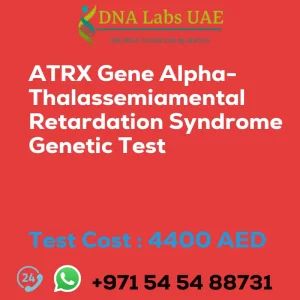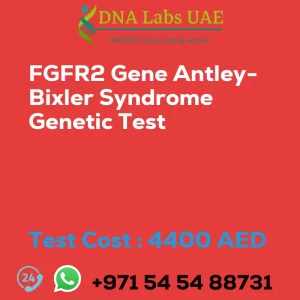IL11RA Gene Craniosynostosis and Dental Anomalies Genetic Test
At DNA Labs UAE, we offer the IL11RA Gene Craniosynostosis and Dental Anomalies Genetic Test at a cost of AED 4400.0.
Test Details
The IL11RA gene is associated with the development of craniosynostosis and dental anomalies. Craniosynostosis is a condition where the bones of the skull fuse prematurely, leading to abnormal head shape and potential neurological problems. Dental anomalies refer to abnormalities in the structure, number, or position of teeth.
Our NGS (Next-Generation Sequencing) genetic test allows for the analysis of multiple genes simultaneously. In the context of craniosynostosis and dental anomalies, this test can identify mutations or variations in the IL11RA gene that may be responsible for these conditions.
By analyzing the IL11RA gene using NGS technology, our healthcare professionals can provide valuable information for diagnosis, prognosis, and potential treatment options. This genetic test can also be used for genetic counseling and family planning purposes.
Test Components and Price
The IL11RA Gene Craniosynostosis and Dental Anomalies Genetic Test costs AED 4400.0. The sample condition can be blood, extracted DNA, or one drop of blood on an FTA card.
Report Delivery and Method
Once the sample is received, the report will be delivered within 3 to 4 weeks. The test is conducted using NGS technology.
Test Type and Doctor
The IL11RA Gene Craniosynostosis and Dental Anomalies Genetic Test falls under the category of dysmorphology. It is recommended to consult with a pediatrician for this test.
Test Department and Pre Test Information
The IL11RA Gene Craniosynostosis and Dental Anomalies Genetic Test is conducted in our Genetics department. Before the test, it is important to provide the clinical history of the patient and undergo a genetic counseling session to draw a pedigree chart of family members affected with IL11RA Gene Craniosynostosis and Dental Anomalies.
Important Note
Genetic testing for craniosynostosis and dental anomalies is typically recommended for individuals who have symptoms or a family history of these conditions. The results of the genetic test should be interpreted by a healthcare professional with expertise in genetics to provide accurate and appropriate guidance for patients and their families.
| Test Name | IL11RA Gene Craniosynostosis and dental anomalies Genetic Test |
|---|---|
| Components | |
| Price | 4400.0 AED |
| Sample Condition | Blood or Extracted DNA or One drop Blood on FTA Card |
| Report Delivery | 3 to 4 Weeks |
| Method | NGS Technology |
| Test type | Dysmorphology |
| Doctor | Pediatrics |
| Test Department: | Genetics |
| Pre Test Information | Clinical History of Patient who is going for IL11RA Gene Craniosynostosis and dental anomalies NGS Genetic DNA Test. A Genetic Counselling session to draw a pedigree chart of family members affected with IL11RA Gene Craniosynostosis and dental anomalies NGS Genetic DNA Test gene IL11RA |
| Test Details |
The IL11RA gene is associated with the development of craniosynostosis and dental anomalies. Craniosynostosis is a condition where the bones of the skull fuse prematurely, leading to abnormal head shape and potential neurological problems. Dental anomalies refer to abnormalities in the structure, number, or position of teeth. An NGS (Next-Generation Sequencing) genetic test is a type of genetic testing that allows for the analysis of multiple genes simultaneously. In the context of craniosynostosis and dental anomalies, an NGS genetic test can identify mutations or variations in the IL11RA gene that may be responsible for these conditions. By analyzing the IL11RA gene using NGS, healthcare professionals can identify individuals who have mutations or variations in this gene, providing valuable information for diagnosis, prognosis, and potential treatment options. This genetic test can also be used for genetic counseling and family planning purposes. It is important to note that genetic testing for craniosynostosis and dental anomalies is typically recommended for individuals who have symptoms or a family history of these conditions. The results of the genetic test should be interpreted by a healthcare professional with expertise in genetics to provide accurate and appropriate guidance for patients and their families. |

